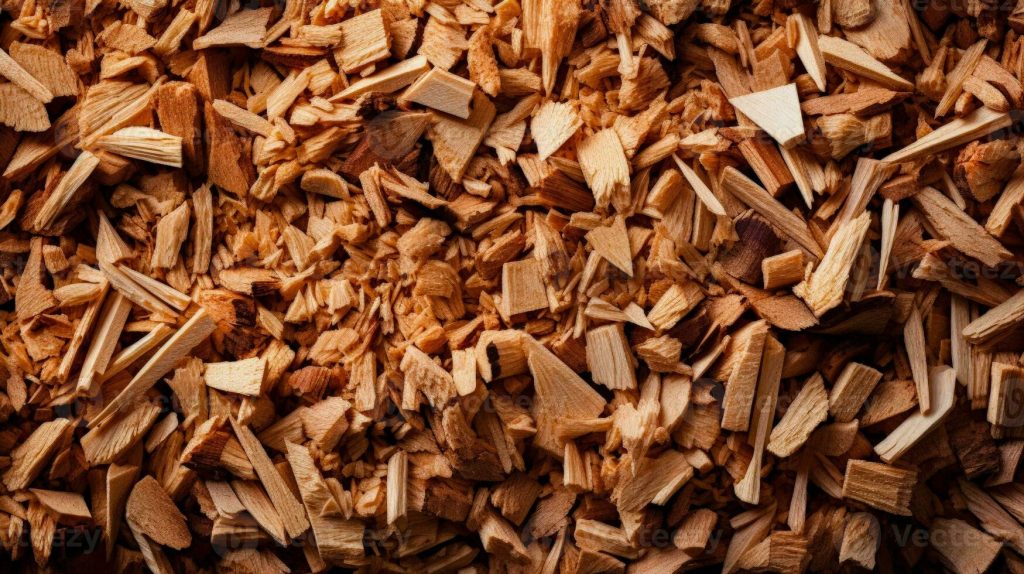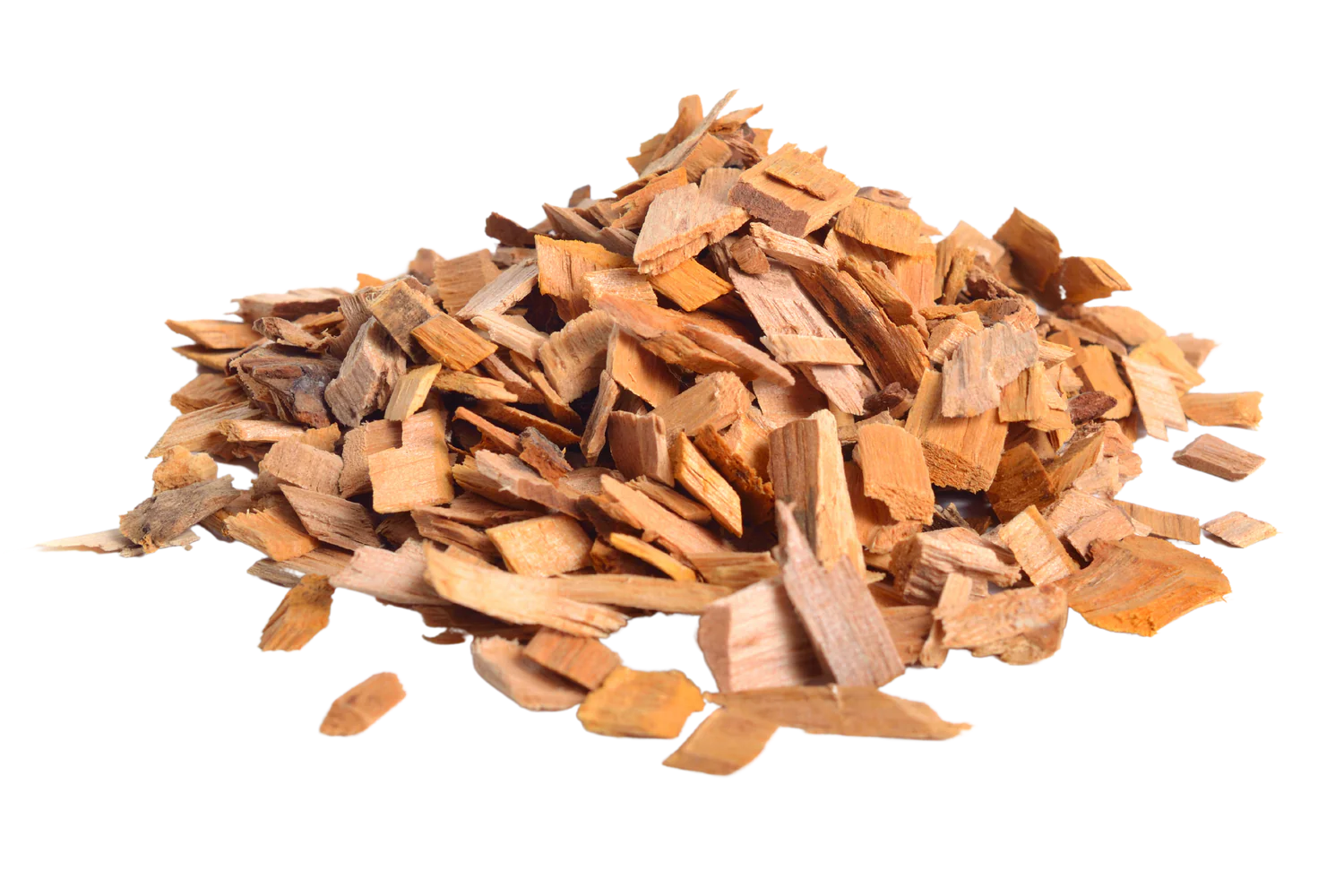Introduction
When it comes to sustainable gardening and farming, Wood Chips stand out as one of the most versatile and cost-effective natural resources. Derived from branches, bark, and small logs, wood chips have long been used as mulch, soil improvers, and animal bedding. Their organic composition makes them an eco-friendly choice, offering benefits such as soil enrichment, moisture retention, and natural weed control. At Biomass Wood Pellets, we understand how essential it is to maximize every resource in farming and gardening, and natural mulch is an ideal solution for anyone looking to enhance crop growth and improve land management. In this article, we will explore 10 smart uses of organic materials in gardening and farms, highlighting how they can contribute to sustainable practices while delivering long-term benefits.
Wood Chips as Mulch
One of the most popular uses of organic material in gardening is as mulch. By spreading it around plants and garden beds, you create a natural protective layer that helps regulate soil temperature, conserve moisture, and suppress weeds. This prevents rapid evaporation during hot weather and protects plant roots in colder months. Over time, this material also breaks down gradually, adding organic matter to the soil and improving its fertility.
Enhancing Soil Fertility
Wood chips are excellent for boosting soil health. As they decompose, they add valuable organic material, enhancing the soil’s texture and improving its nutrient content. This is particularly useful in farms where the soil becomes depleted after continuous cultivation. By mixing wood chips into compost or directly into the soil, farmers can restore fertility and encourage microbial activity that benefits crop growth.
Weed Suppression with Wood Chips
Weeds are a constant challenge in both gardens and farms. Applying a thick layer of wood chips around plants effectively blocks sunlight from reaching weed seeds, reducing their germination and growth. Unlike synthetic herbicides, this method is natural, safe, and environmentally friendly. Using wood chips in pathways and between crop rows ensures minimal weed competition, giving crops the best chance to thrive.
Wood Chips for Moisture Retention
Maintaining proper soil moisture is crucial for healthy plant growth, especially in dry climates. Organic mulch acts like a sponge, holding water and slowly releasing it into the soil. This reduces the need for frequent irrigation, saving time and water resources. For farmers, effective moisture retention can significantly cut costs while ensuring crops remain well-hydrated during dry spells.
Animal Bedding with Wood Chips
Organic mulch serves as an excellent material for animal bedding in farms. It provides a dry and comfortable surface for livestock, reducing odors and absorbing waste. Unlike straw or hay, this material decomposes slowly, lasting longer and offering cost savings. Its natural absorbent properties make it ideal for poultry houses, cattle stalls, and horse stables, contributing to animal comfort and farm hygiene.

Wood Chips in Composting
Adding wood chips to compost piles helps balance the carbon-to-nitrogen ratio, ensuring proper decomposition. They introduce air pockets that improve aeration, preventing foul odors and speeding up the composting process. Farmers and gardeners can combine wood chips with food scraps, manure, and green waste to create nutrient-rich compost. This compost can then be applied back to fields and gardens, reducing dependency on chemical fertilizers.
Erosion Control with Wood Chips
Erosion is a common problem in farms, particularly on sloped land. Organic mulch acts as a natural barrier against wind and water erosion by covering exposed soil. It slows down water runoff, allowing more water to seep into the ground instead of washing away valuable topsoil. By stabilizing soil structure, this mulch protects farmland and maintains long-term productivity.
Improving Pathways and Walkways
Both in gardens and on farms, pathways can become muddy and difficult to navigate after rainfall. Spreading organic mulch across walkways creates firm, dry, and attractive paths that are easy to walk on. This prevents soil compaction in areas of high foot traffic and enhances the overall appearance of gardens. On farms, these mulch-covered pathways make it easier for workers and machinery to move around without damaging crops or compacting soil.
Using Wood Chips for Mushroom Cultivation
Organic material provides an excellent medium for growing mushrooms, especially species such as shiitake and oyster mushrooms. Its composition offers the perfect environment for fungal growth, making mushroom farming a profitable venture for many small-scale farmers. By inoculating this material with mushroom spores, farmers can create sustainable and productive cultivation systems that generate additional income.
Natural Pest Control with Wood Chips
Another smart use of organic mulch is its role in pest management. Certain types, such as cedar and pine, naturally repel insects and other pests. When used around plants, this mulch can help deter harmful pests while creating a healthier environment for crops. Farmers and gardeners benefit from reduced chemical pesticide use, lowering costs and promoting eco-friendly farming practices.
Conclusion
Organic byproducts from tree cutting are more than just waste—they are valuable resources with countless applications in gardening and farming. From mulch and soil improvement to erosion control and animal bedding, these materials offer practical, sustainable, and cost-effective solutions for everyday challenges. At Biomass Wood Pellets, we recognize the importance of using natural resources to support both small gardens and large farms. Incorporating these materials into your farming or gardening practices not only improves productivity but also promotes environmental sustainability. Whether you are looking to conserve water, enrich soil, or create a healthier farm environment, natural mulch and organic materials are the smart choice for long-term success.
Easily navigate our content by starting from the homepage.
FAQs
What type of wood chips are best for gardening?
Hardwood chips such as oak, maple, or fruit trees are ideal for gardening because they decompose slowly and add valuable nutrients to the soil. Avoid treated wood, as it may contain chemicals harmful to plants.
Can wood chips attract pests?
While most wood chips are safe, some softwood chips may attract termites if placed too close to wooden structures. However, certain wood chips like cedar naturally repel insects, making them beneficial for gardens.
How long do wood chips last in soil?
Wood chips can last from one to three years depending on the type of wood and climate conditions. Over time, they gradually break down, enriching the soil with organic matter and improving its fertility.
